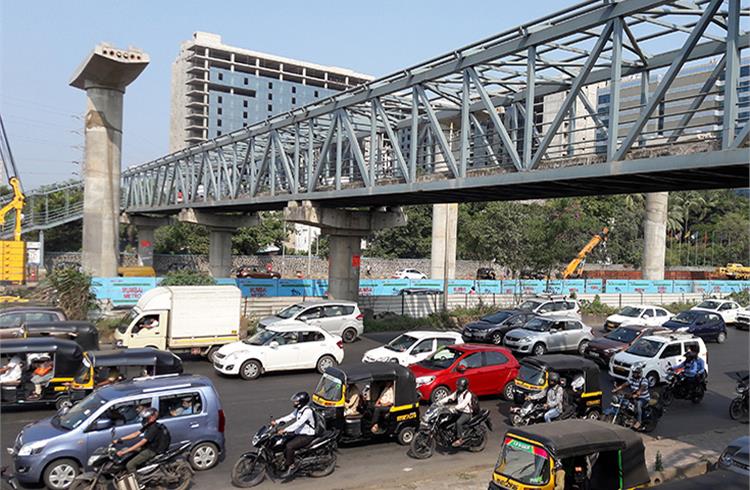PV sales set to grow in FY2022 but will still be a ‘catch up’ year
Even as the industry is set to clock a healthy growth, despite its share of challenges this year, FY2022 will still be a year of catching up with the volumes it clocked during its best-ever year of FY2019.
The financial year that just ended saw the domestic passenger vehicle market still driving in negative territory with a fall of a little over 2 percent in sales volume. But the financial year that has just started is expected to see it drive into growth territory, at a fairly healthy pace. Investment information and credit rating agency ICRA projects a growth of 22-25 percent for the Indian PV industry during the current financial year. Much of it will be due to an expected slow Q1 of this year. The ongoing semi-conductor shortage, the production impact of which is expected to remain till June, will be a key factor affecting growth.
“The market is going very strong,” says Gaurav Vangaal, associate director – light vehicle forecasting, IHS Markit. However, he also adds that along with the semi-conductor shortage challenge, rise in vehicle and fuel prices could be dampeners for the industry’s growth. IHS Markit projects a 28 percent production growth, to 4.31 million, in the light vehicle industry this year.
Even as the industry is set to clock a healthy growth, despite its share of challenges this year, FY2022 will still be a year of catching up with the volumes it clocked during its best-ever year of FY2019. The Indian PV market saw sales of 3.37 million units during that year, followed by 2.77 million in FY2020, and 2.71 million during the year that has just ended, FY2021. In other words, last year’s volumes are still close to 20 percent behind FY2019.
Shashank Srivastava, ED – marketing and sales, Maruti Suzuki, agrees that 2021-22 will be a year of catching up for the industry. While he sees good demand, the market performance will also depend on the performance of the economy, and how the Covid situation progresses. Except for any strong measures like a lockdown, Srivastava is hopeful that the industry impact of the new Covid wave will not be as bad as it was last year. “With the vaccination this year, people are less afraid now,” he says, while adding that there’s no concern yet looking at the current trend of enquiry and bookings at Maruti Suzuki dealerships. The OEM will look at all opportunities, and maybe also create some this year, after an 8.5 percent fall in volumes last year, in-line with the FY2021 performance of most other PV OEM. Absence in the diesel, and mid-size SUV segments are a couple of the factors that led to the higher than industry drop in volumes.
Overall, for the market leader and the rest of the PV industry, FY2022 is set to be a growth year, with the subsequent year likely to see the industry surpass the peak of 2018-19. According to ICRA, the industry’s total investment outlay, primarily for new products/platforms and regulatory compliance, is estimated at Rs 28,000-33,000 crore during FY2022-FY2023.
As for the current month, all OEMs are set to report never-before growth as April 2020 was the first-ever month of zero sales for the domestic industry.
RELATED ARTICLES
Bosch hydrogen engine tech-powered truck to be on Indian roads this year
The global supplier of technology and services is betting big on both electromobility and hydrogen. While announcing the...
IIT Bombay inaugurates Arun Firodia Research Floor
IIT Bombay, one of India’s top technical and research institutions, honours Kinetic Group chairman Dr Arun Firodia, one ...
Maruti Suzuki expands capacity at Manesar plant by additional 100,000 units
New assembly line at Plant A expands total manufacturing capacity at the Manesar plants to 900,000 units per annum. Alon...





 03 Apr 2021
03 Apr 2021
 4257 Views
4257 Views





 Autocar Pro News Desk
Autocar Pro News Desk




